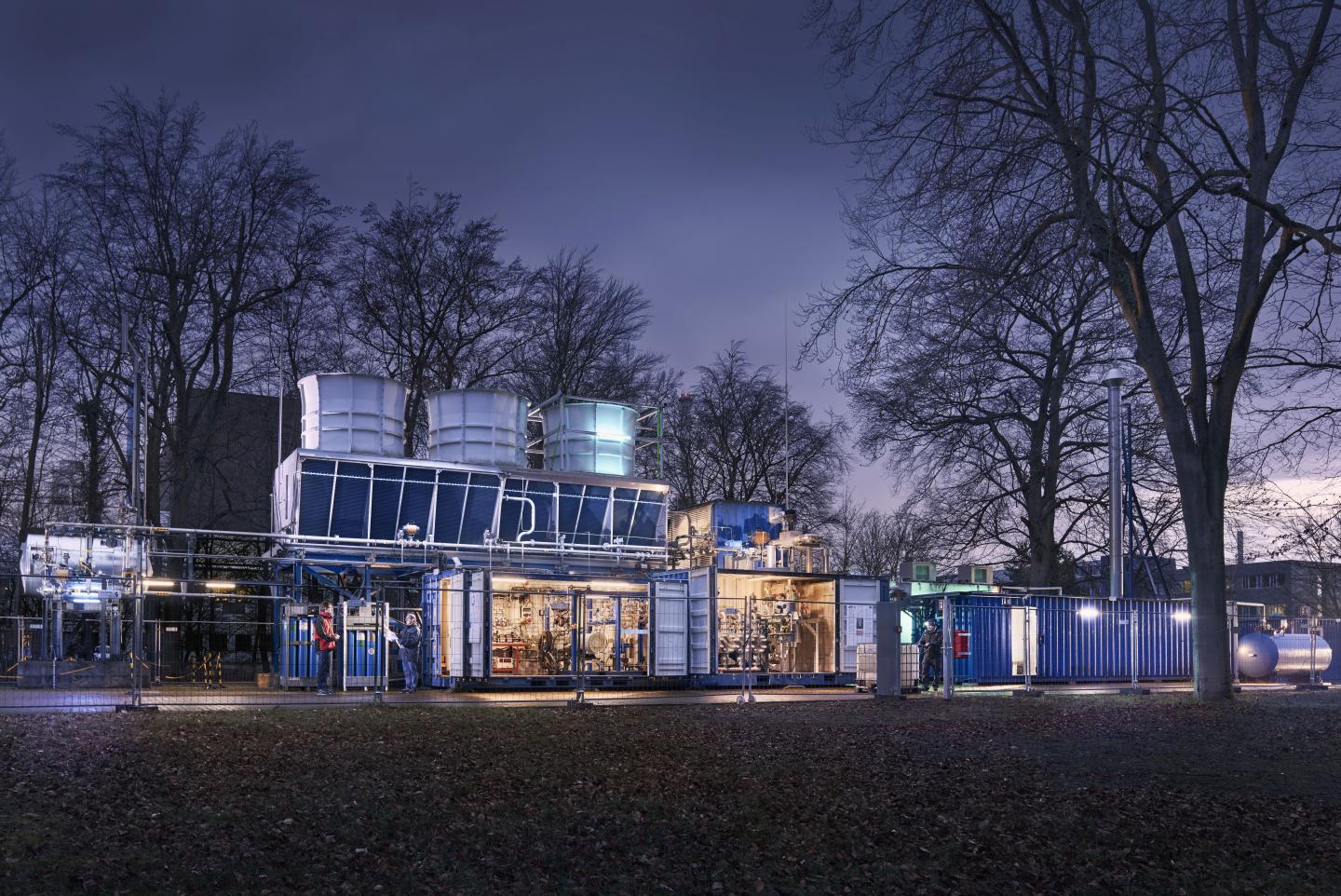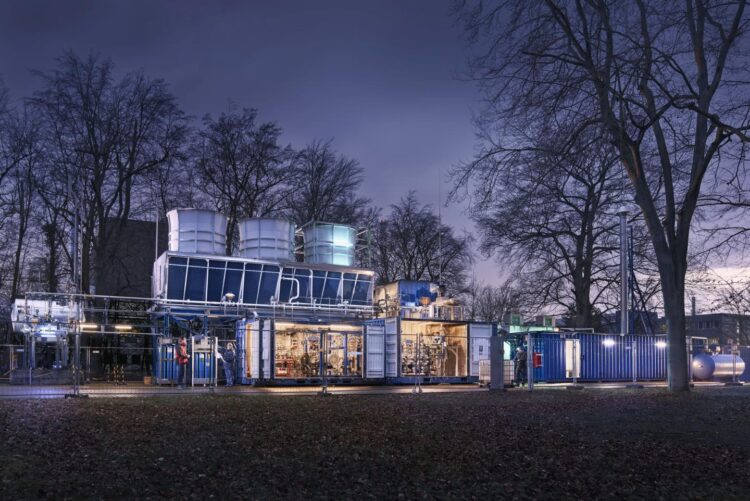MoNiKa: Researchers and industry work on technologies for energy-efficient power generation from low-temperature heat

Credit: Markus Breig/Amadeus Bramsiepe, KIT
Low-temperature heat in the form of waste heat from industry or geothermal power plants offers big potential for sustainable and need-tailored power supply. The Modular Low-temperature Cycle Karlsruhe (MoNiKa), the only research facility of this kind in Europe, has now started operation at Karlsruhe Institute of Technology (KIT). Work is aimed at enhancing efficiency and environmental compatibility of the conversion of excessive heat into electric power by means of the organic Rankine cycle (ORC).
In the past years, low-temperature heat gained importance for efficient electricity generation with low CO2 emissions. “Instead of releasing excessive heat into the environment, it makes more sense to use it and to produce electricity from it,” says Dr. Dietmar Kuhn, Head of the Energy and Process Engineering Group of KIT’s Institute for Thermal Energy Technology and Safety (ITES). So-called ORC facilities are used to convert heat with a temperature below 200°C into electricity for private households. These facilities are based on the organic Rankine cycle, a process named after the British founder of thermodynamics, William John Macquorn Rankine, and mainly used in geothermal power plants.
It is a fluid-steam cycle, in which fluid is circulated and heated under pressure increase until it evaporates. The hot steam is passed to a turbine that reduces pressure and temperature and converts it into kinetic energy and electricity. The boiling point of water under pressure is several hundred degrees. This is far higher than what can be supplied by a low-temperature source, such as geothermal heat. For this reason, the ORC process uses other fluids as working media than a coal-fired power plant. At MoNiKa, experts work with propane that is characterized by a very low global warming potential, while performance is high.
Strategies to Enhance the Efficiency of ORC Facilities
So far, the efficiency or power yield from excessive heat of ORC facilities has been in the range of 10 to 15 percent only. KIT researchers now want to develop new strategies to enhance efficiency of ORC facilities and reduce their CO2 footprint. “MoNiKa is a research and development facility of the latest state of the art. It is the only one of its kind in Europe,” Kuhn says. Contrary to most ORC power plants, the steam cycle of MoNiKa is operated supercritically. Regarding temperature, pressure, and density, the so-called critical point, at which a gas becomes fluid and vice versa, is exceeded. Phase transitions become smooth. “As a result, the electricity yield can be increased by 20 to 30 percent,” Kuhn says.
The modular facility includes a heating plant that simulates the source of low-temperature heat. Numerous sensors measure temperatures, pressures, and flow rates for comparing operation data with model calculations and improving prognosis quality. On this basis, researchers plan to analyze and optimize central components, such as the heat exchanger or the innovative hybrid capacitor, to enhance their energy efficiencies and environmental compatibilities. Work is also aimed at reducing or preventing leaks of the cycle.
Plant for Application-oriented Research
MoNiKa has a thermal power of one megawatt and, hence, allows for scaling and transferring research results to levels used in practice. First experiments have already started. The facility is planned to be used for application-oriented research projects and to be connected to KIT’s Energy Lab 2.0 in the long term. At the moment, Kuhn and his team, together with interested industry partners, are identifying research topics and needs. The large investment project, under which the plant was built by ITES, started in 2013 and ended in 2021 and was funded with EUR 4.4 million by the Federal Ministry of Education and Research. (sur)
###
Further Information: https:/
More about the KIT Energy Center: https:/
Contact for This Press Release
Martin Heidelberger, Press Officer, phone: +49 721 608-41169, email: [email protected]
Being “The Research University in the Helmholtz-Association,” KIT creates and imparts knowledge for the society and the environment. It is the objective to make significant contributions to the global challenges in the fields of energy, mobility and information. For this, about 9,600 employees cooperate in a broad range of disciplines in natural sciences, engineering sciences, economics, and the humanities and social sciences. KIT prepares its 23,300 students for responsible tasks in society, industry, and science by offering research-based study programs. Innovation efforts at KIT build a bridge between important scientific findings and their application for the benefit of society, economic prosperity, and the preservation of our natural basis of life. KIT is one of the German universities of excellence.
This press release is available on the internet at http://www.
Media Contact
Monika Landgraf
[email protected]
Original Source
https:/





